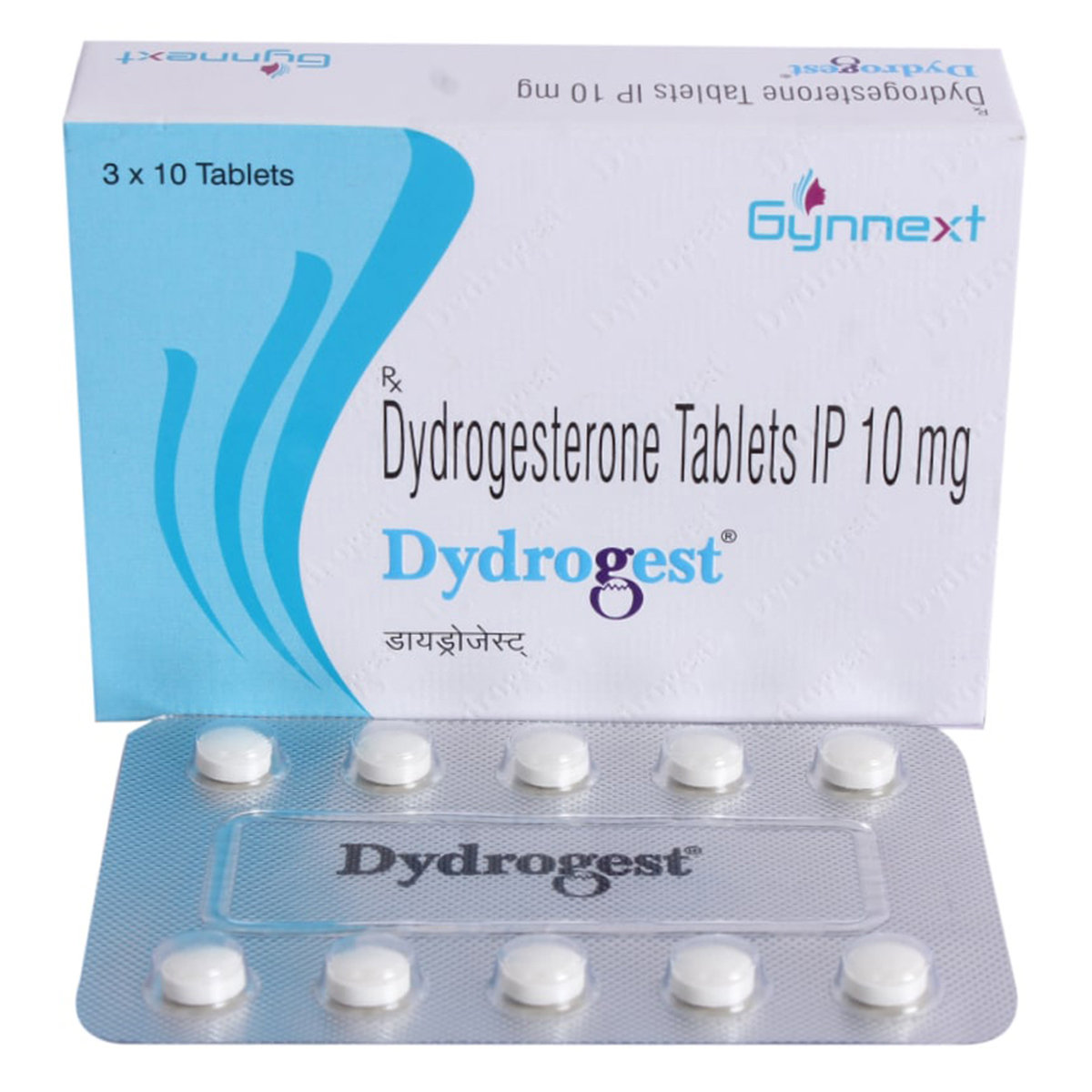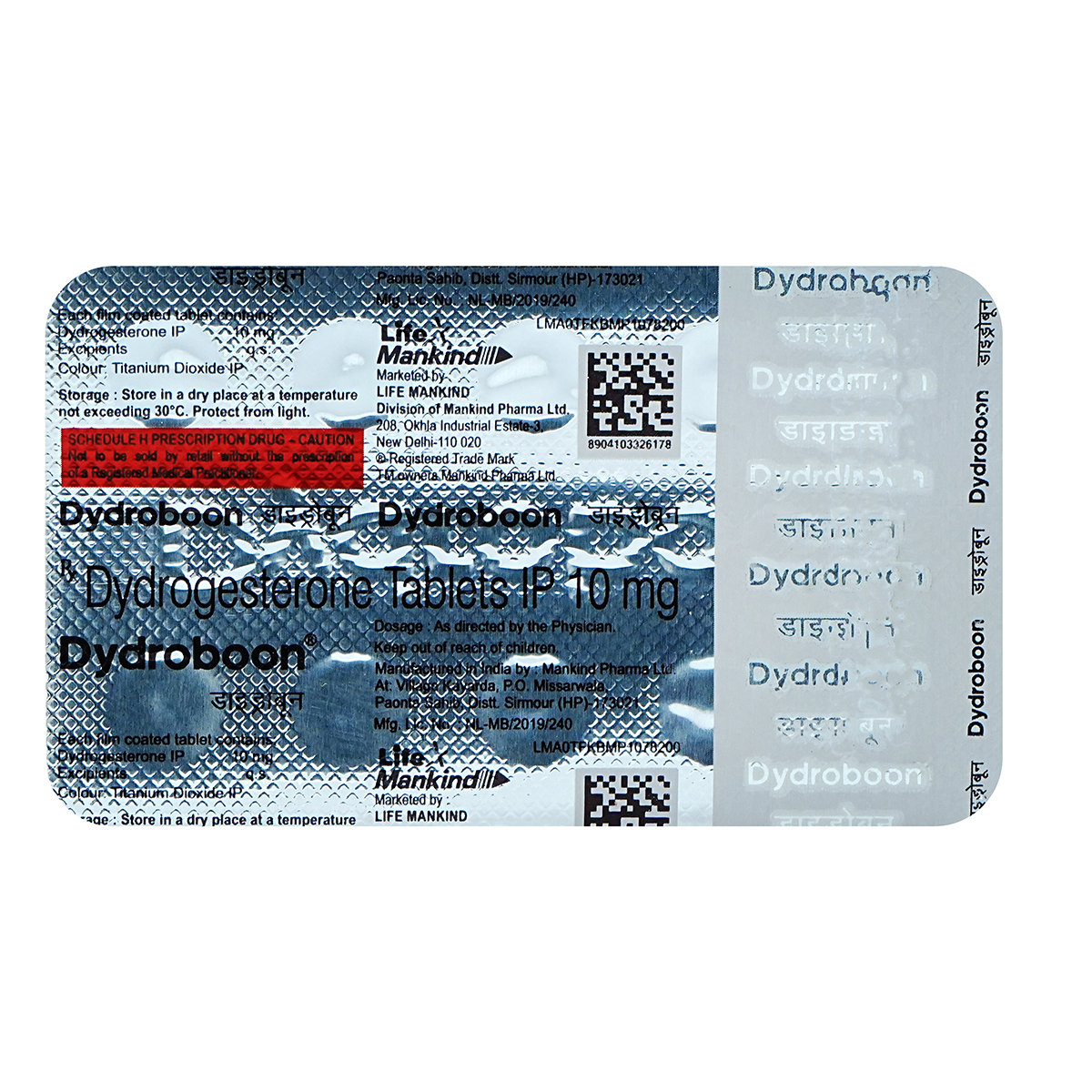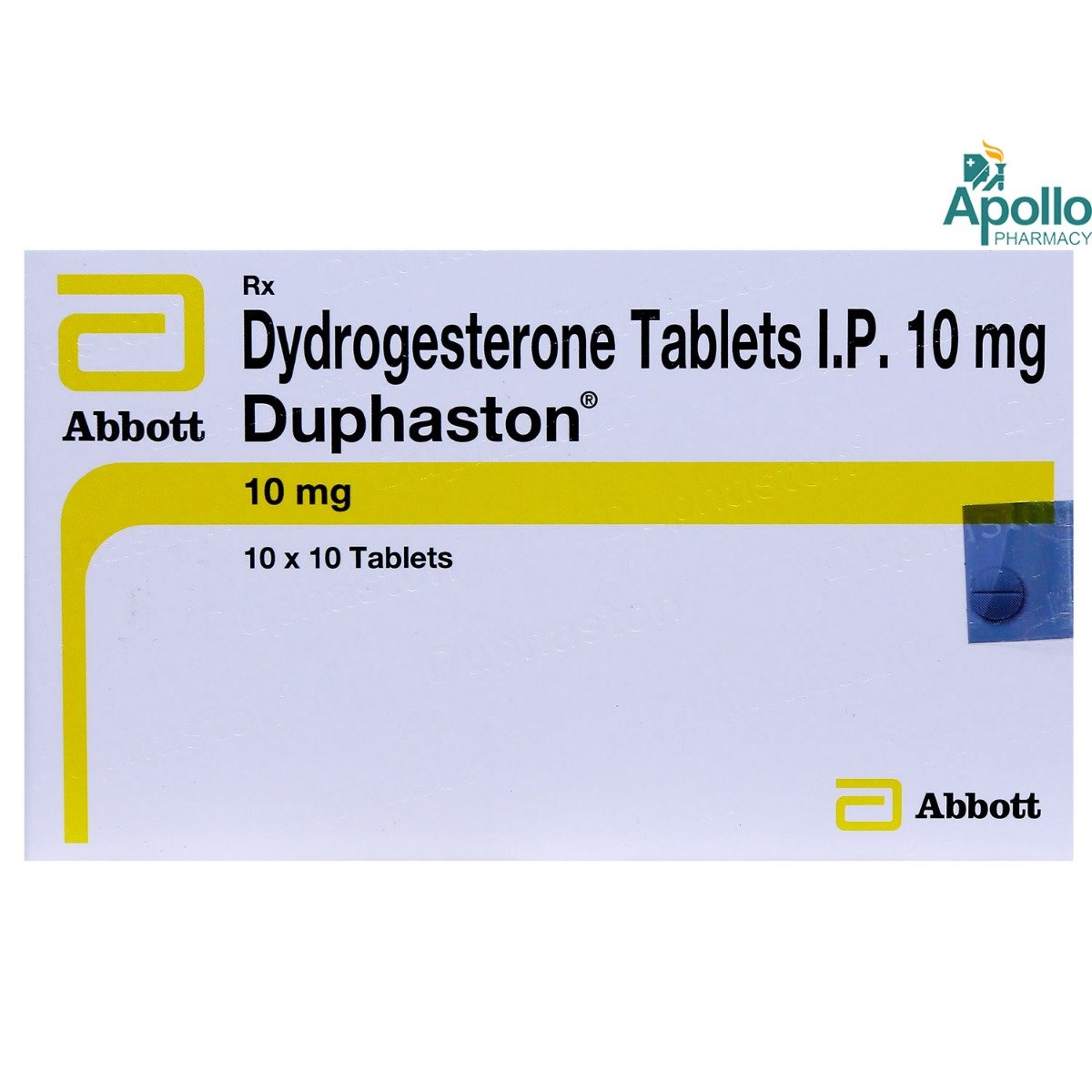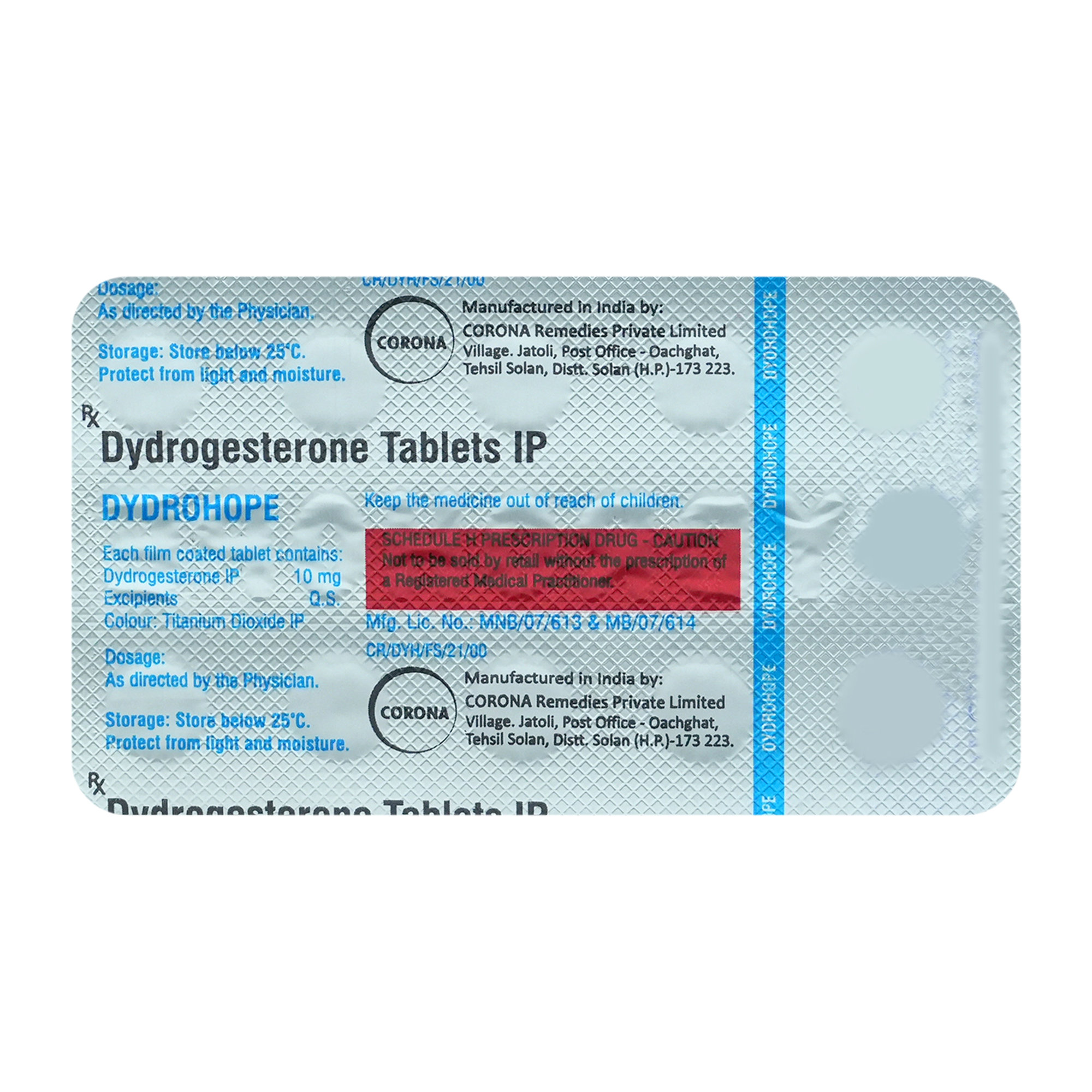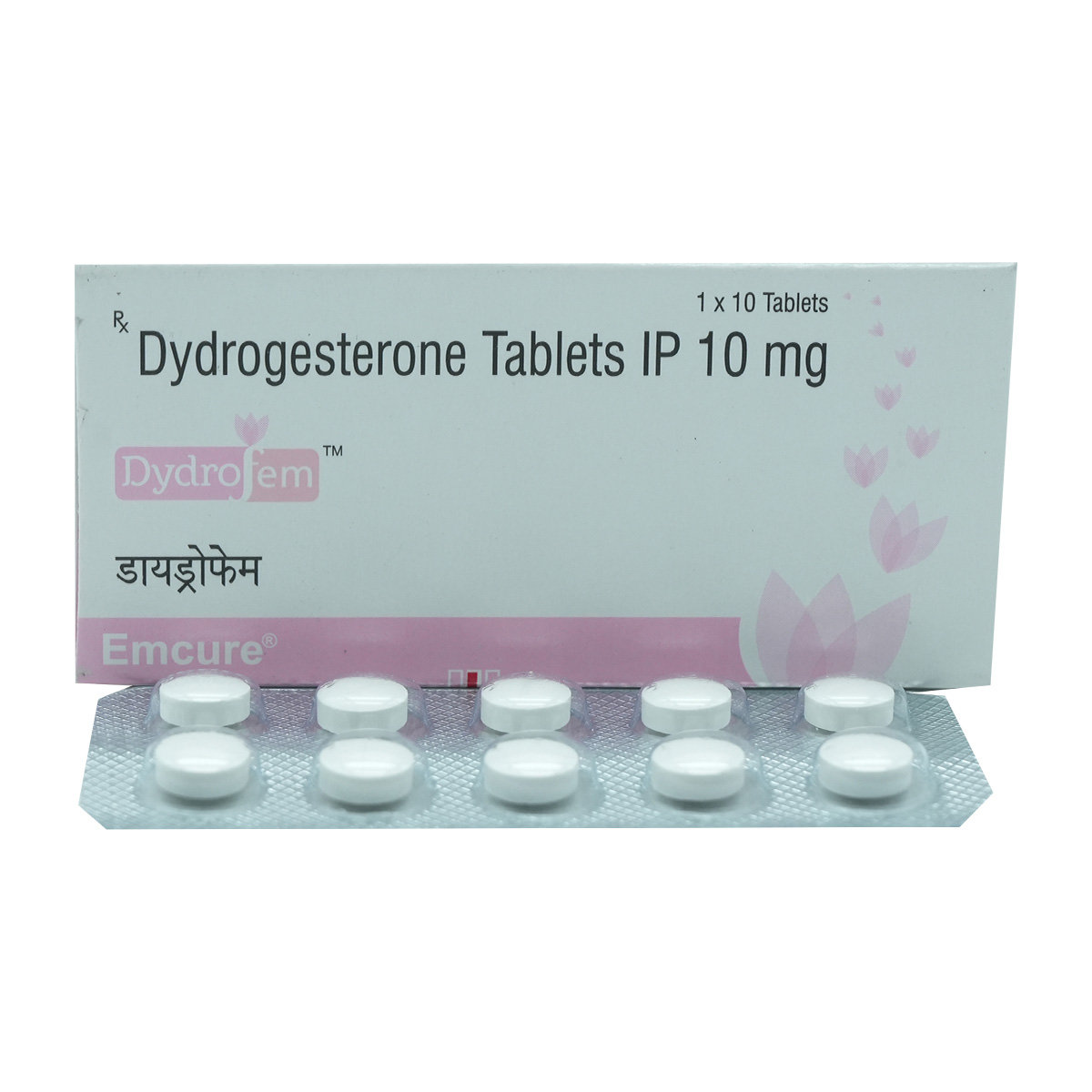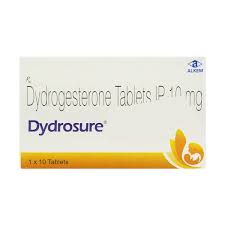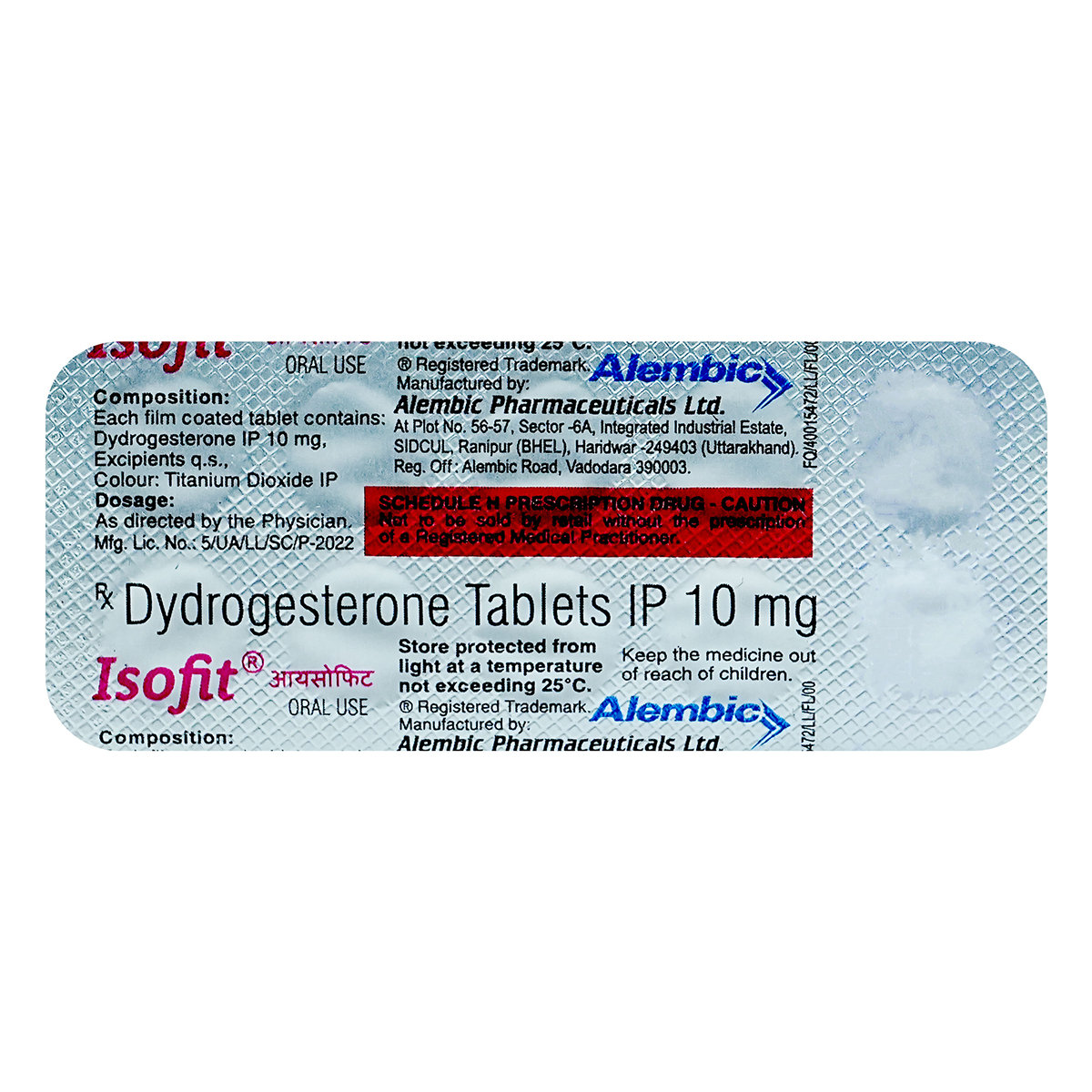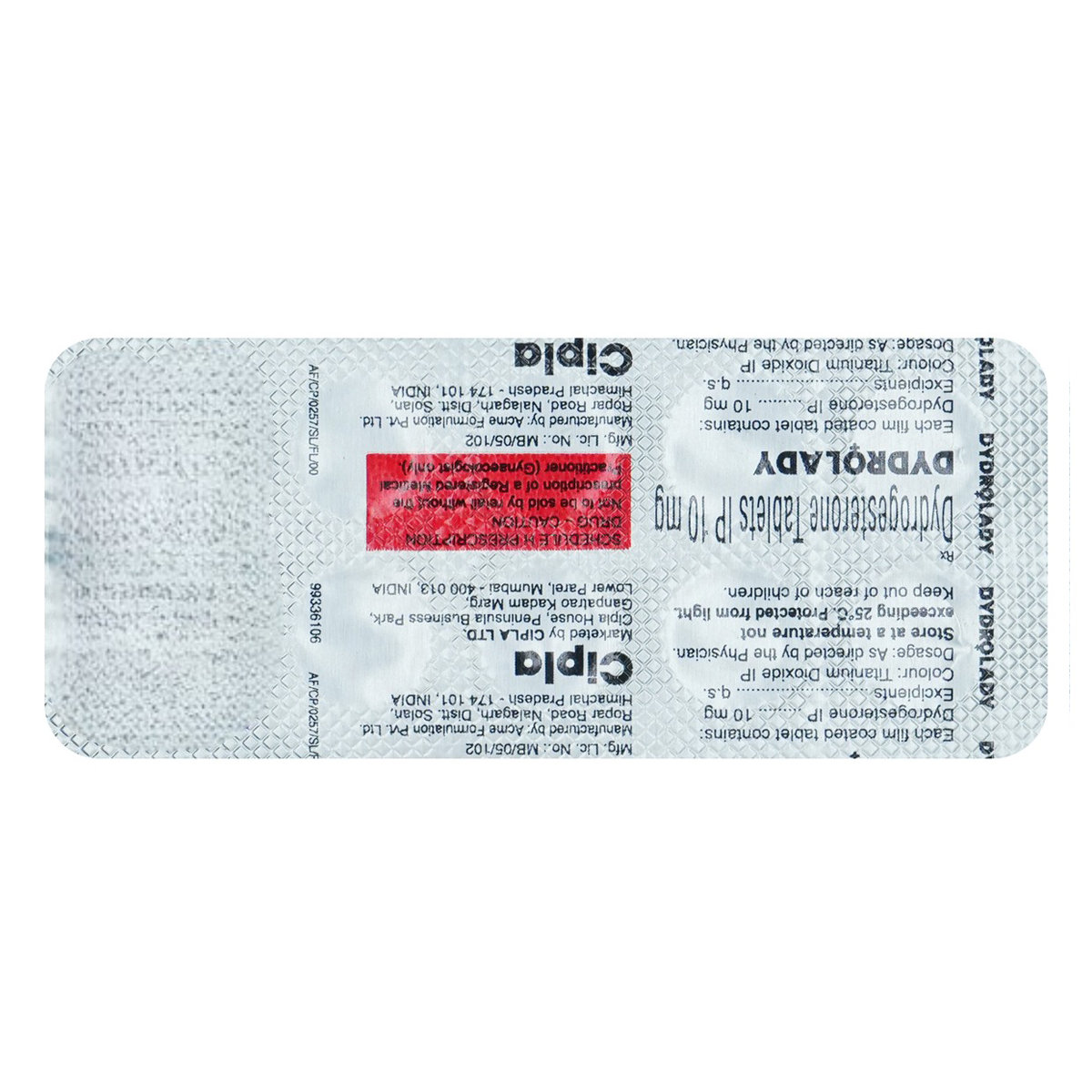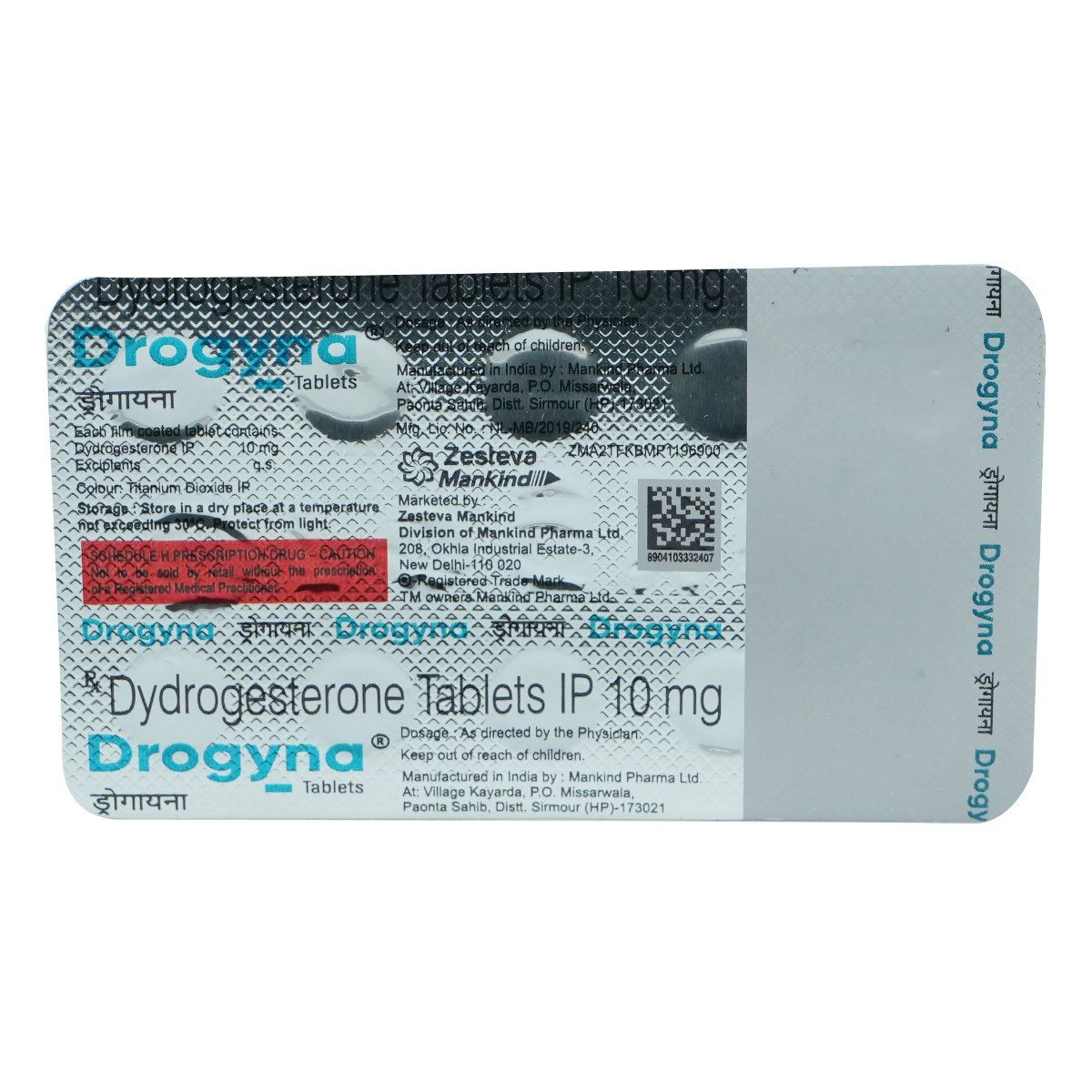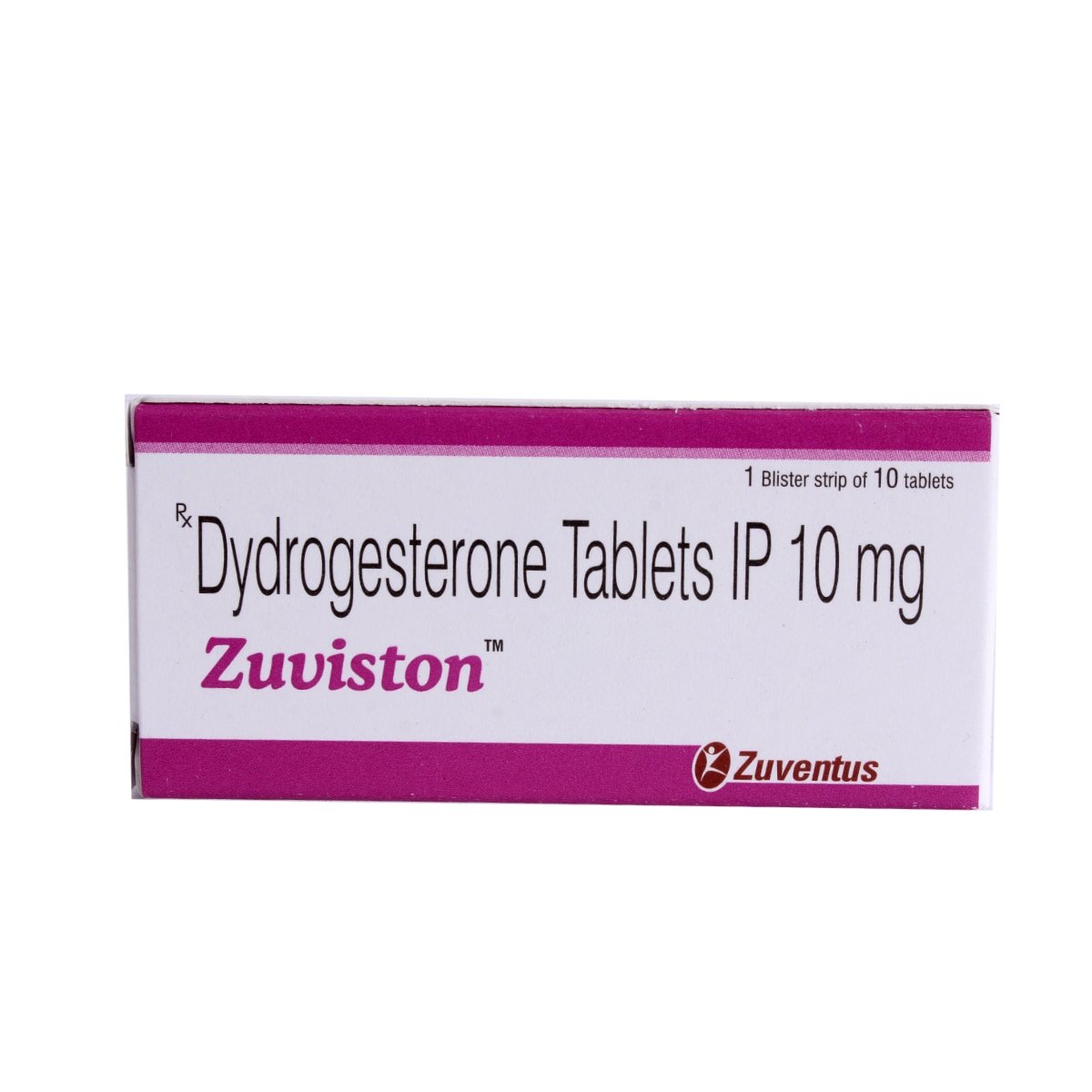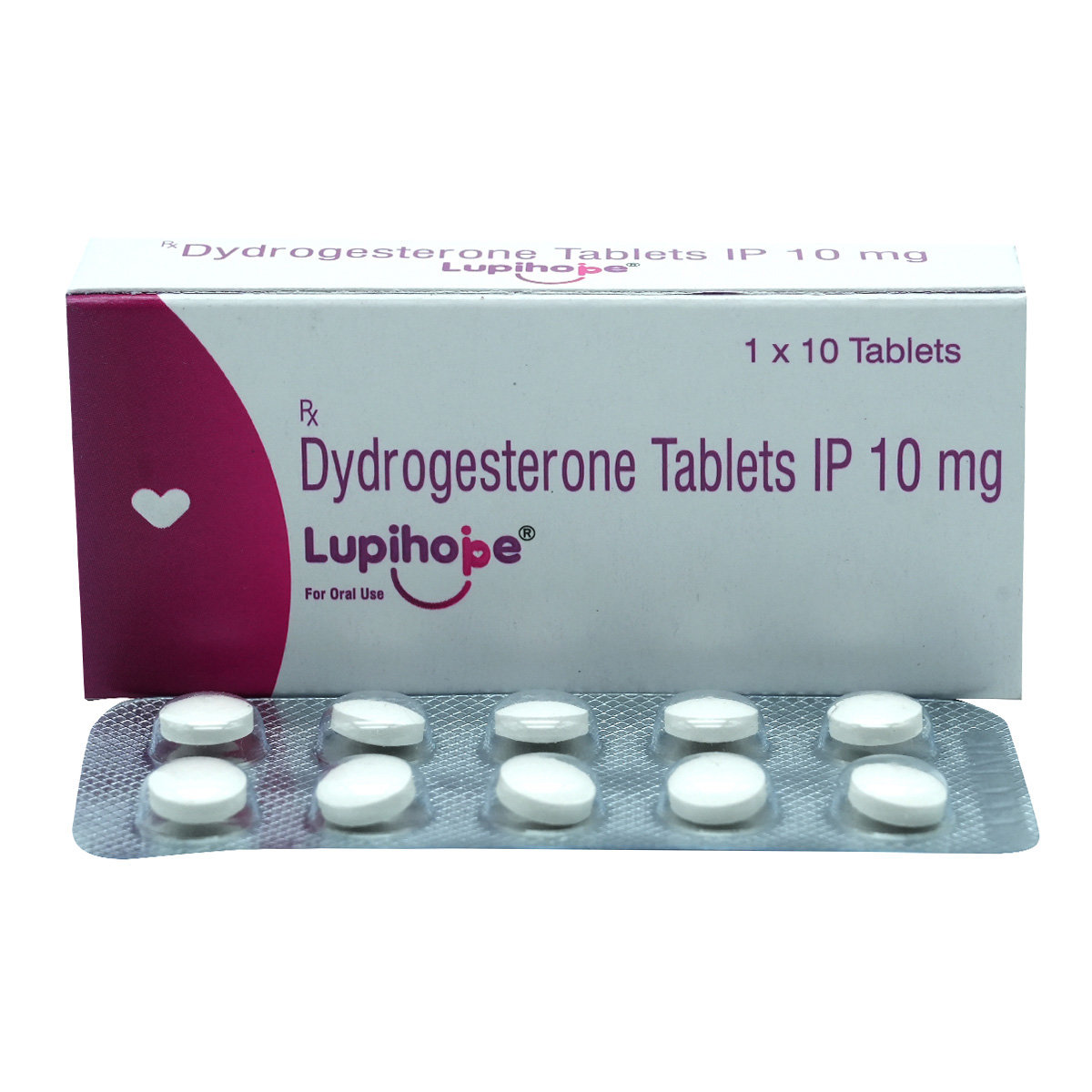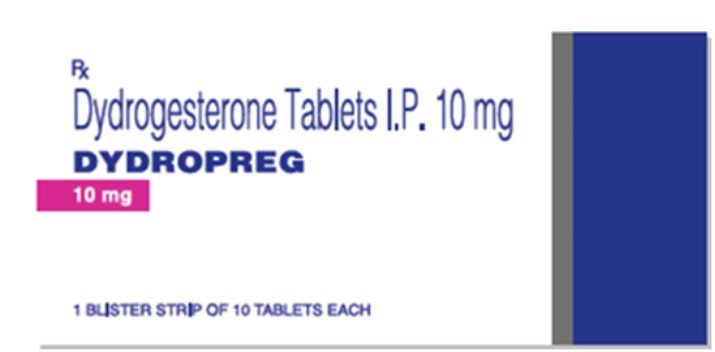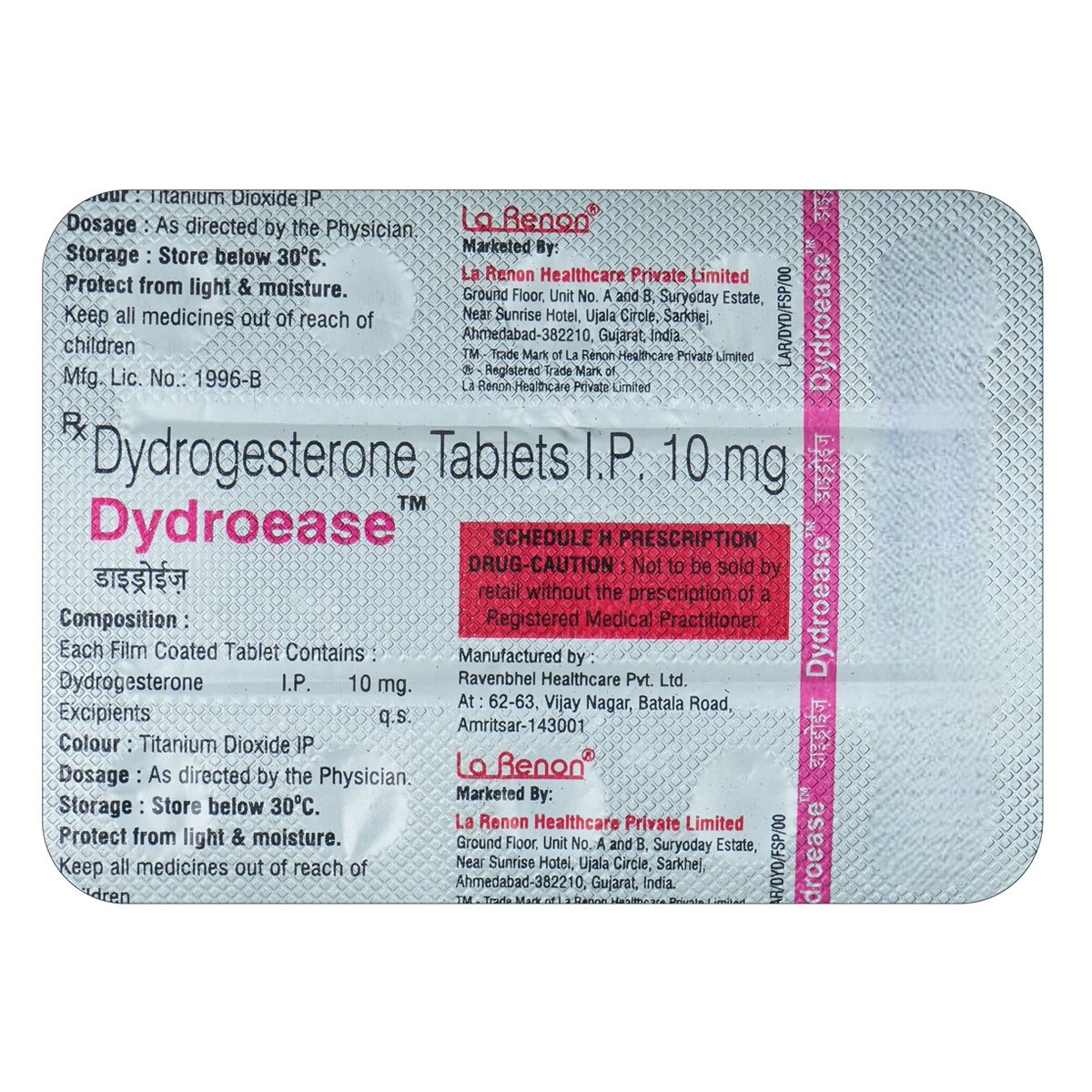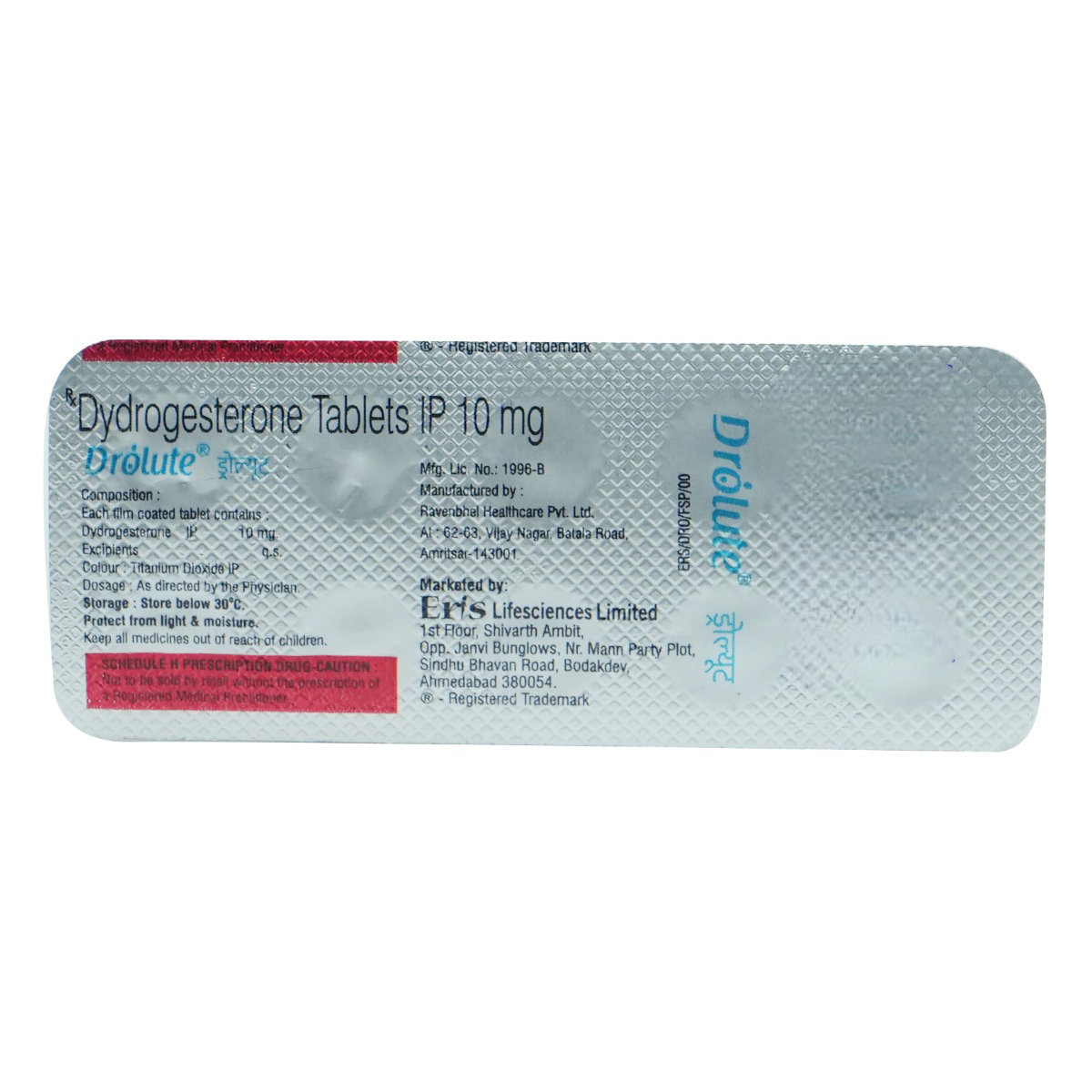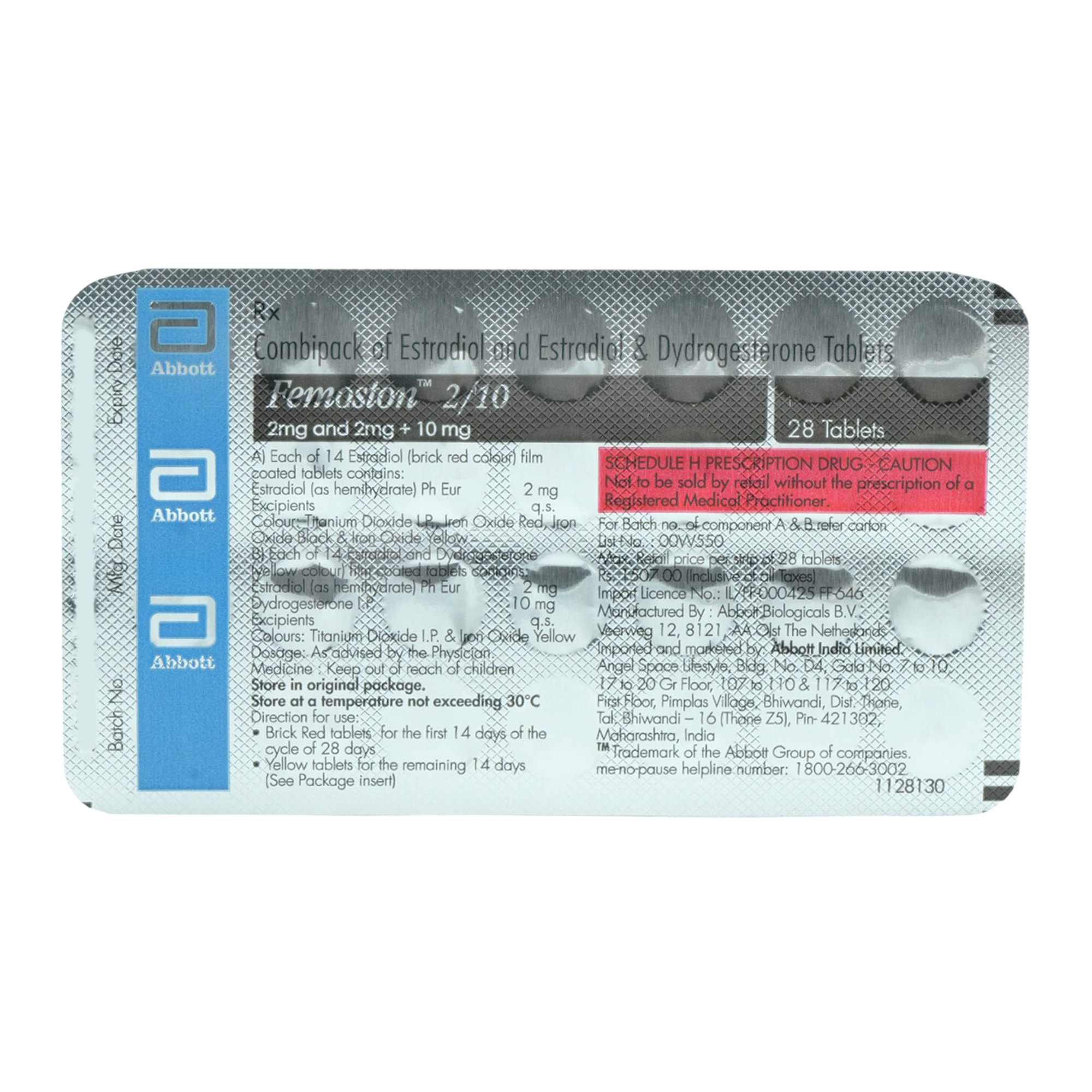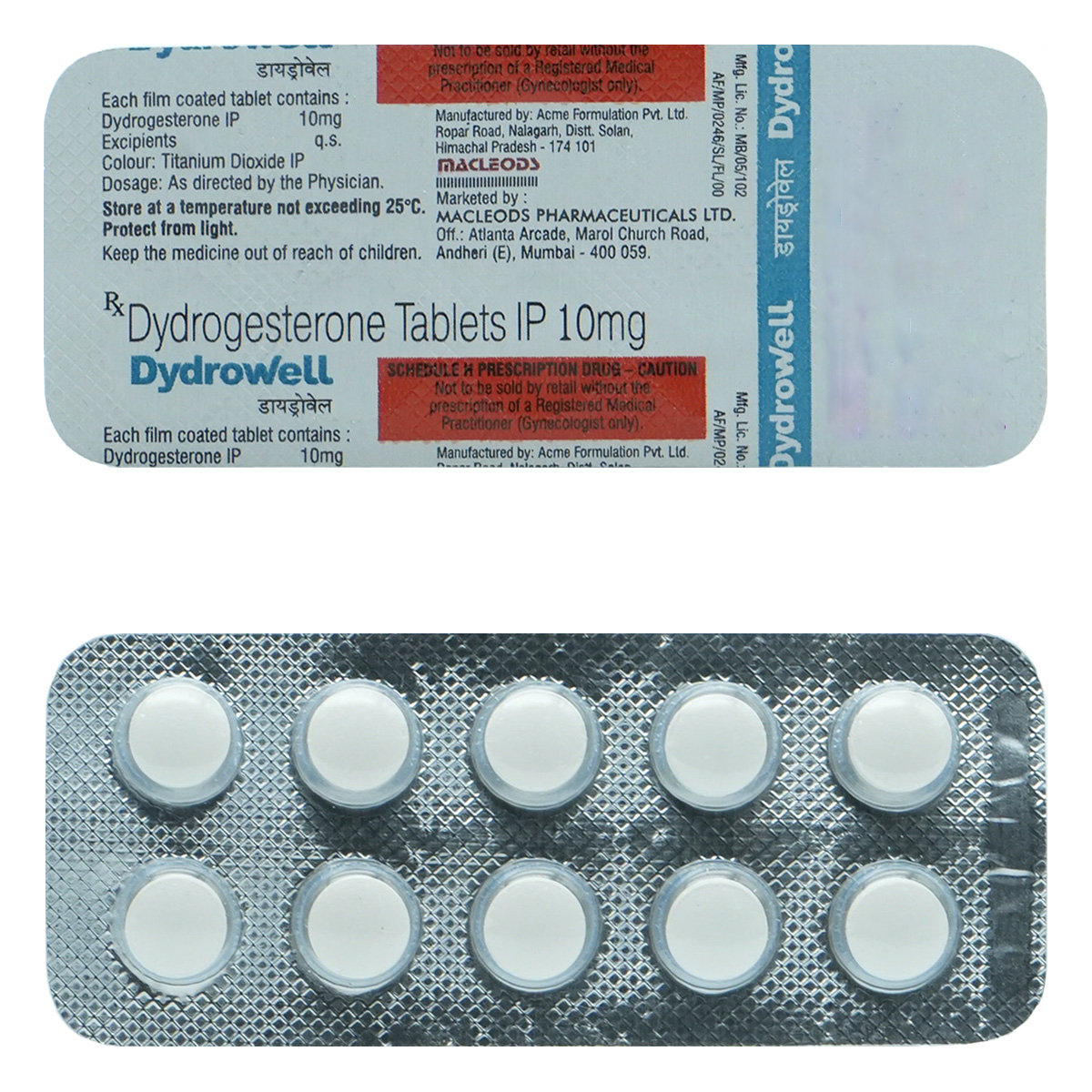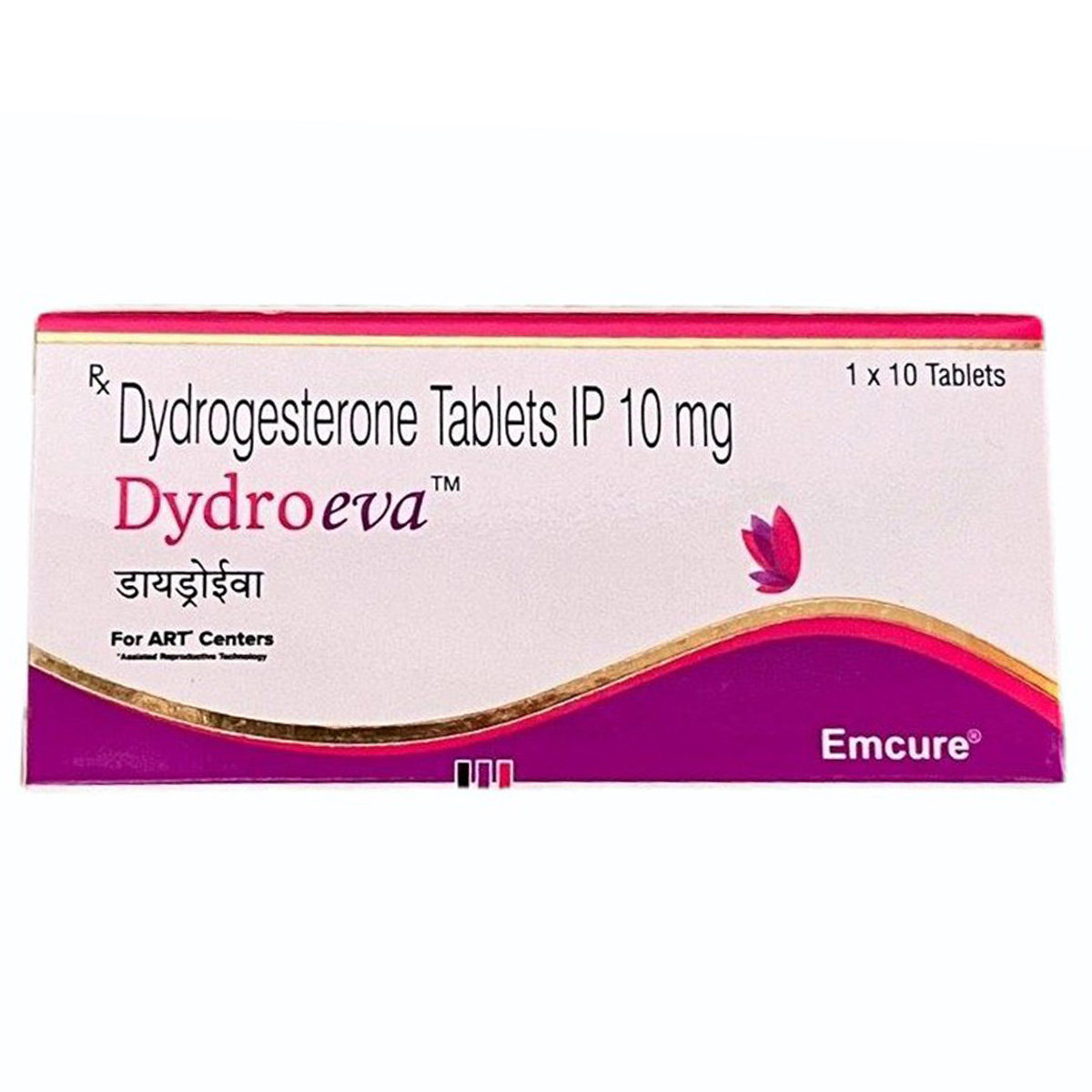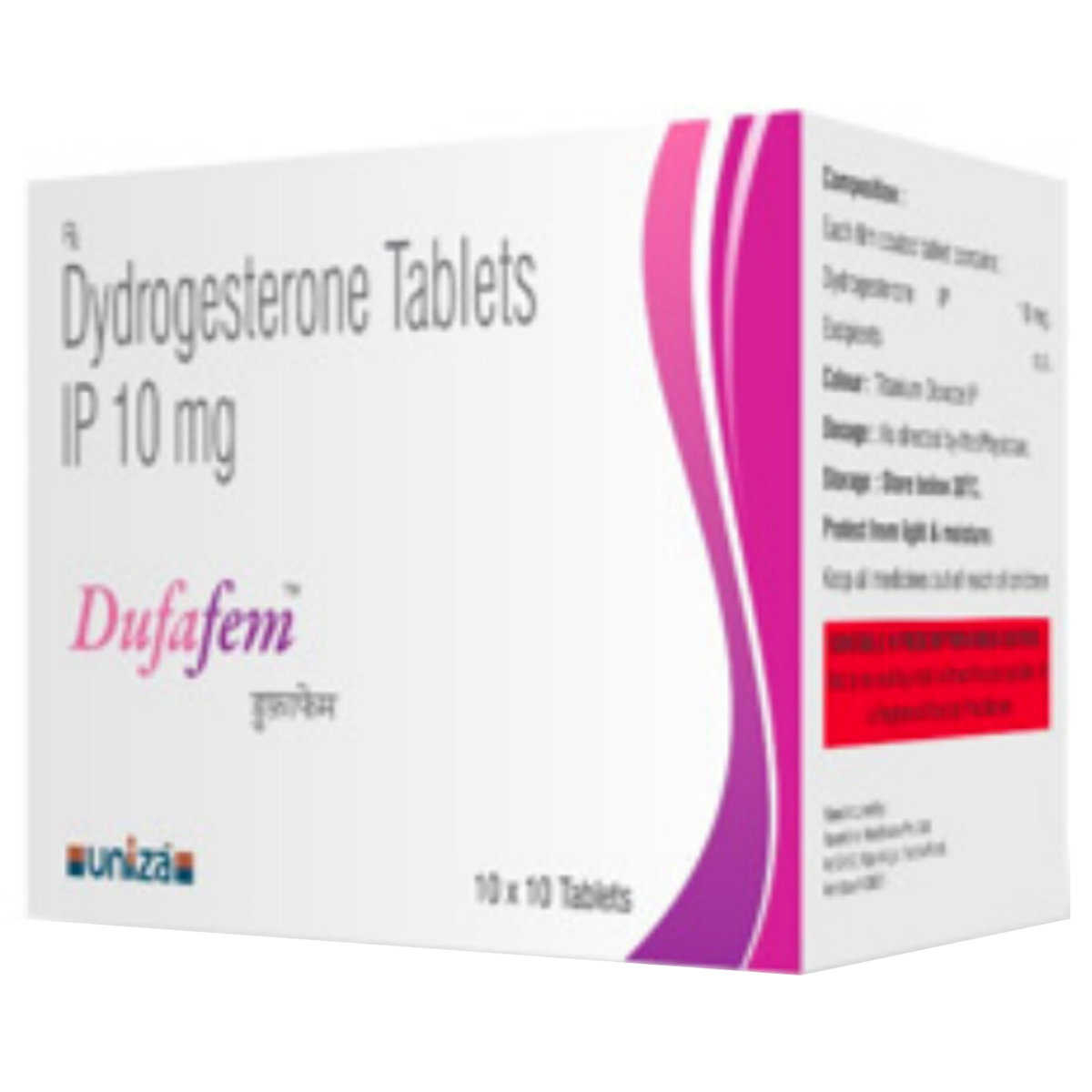Dydrogesterone
About Dydrogesterone
Dydrogesterone is used in the treatment of female infertility and premenstrual syndrome, which are linked to progesterone deficiency. Infertility is the inability to conceive within 12 months. Premenstrual syndrome comprises signs and symptoms like mood swings, tender breasts, food cravings, fatigue, irritability, and depression. It occurs during certain days of the menstrual period in females, generally just before their menses. It is also used for conditions like dysmenorrhea, endometriosis, infertility, and irregular menstrual cycles
Dydrogesterone contains dydrogesterone, a female hormone that controls women's ovulation and menstruation. Dydrogesterone causes changes in the uterus's endometrium lining and blocks the maturation and release of the follicle, and retains pregnancy.
Not everyone who is taking Dydrogesterone will get these side effects. While using this medicine, you may sometimes have breast tenderness, swelling in other parts of the body, headaches, migraines, mood swings, depression, acne, tummy (abdominal) pain, back pain, and vaginal bleeding. Most of these side effects of Dydrogesterone do not require medical attention and gradually resolve over time. However, if the side effects are persistent, reach out to your doctor.
Take Dydrogesterone as advised. Your doctor will advise you on your dose and how often you need to take this medication based on your medical condition. You can take Dydrogesterone with or without food. However, it is advised to take Dydrogesterone with food to avoid stomach upset. It is advised not to take more than the recommended dose of Dydrogesterone. Do not chew, crush, or break the medicine. Try not to stop taking this medicine on your own
Inform your physician if you are allergic to Dydrogesterone. Using Dydrogesterone may increase the risk of blood clots. Inform your doctor if you have had breast cancer, unusual bleeding in the vagina, liver/kidney disease, or any other health problems before starting the treatment. If you are taking any other medicine or are allergic to any medication, please inform your doctor. Avoid smoking and alcohol to prevent any unpleasant side effects. Dydrogesterone should not be used if you have heart disease or dementia because this medicine may increase your risk of developing these conditions.
Uses of Dydrogesterone
• Treatment of Menstrual Disorders: Dydrogesterone is frequently prescribed to regulate irregular menstrual cycles and manage conditions like heavy menstrual bleeding (menorrhagia). It helps restore normal menstrual function effectively.
• Support in Early Pregnancy: Dydrogesterone is often used to support early pregnancy for women with a history of recurrent miscarriages. By providing progesterone, it plays a vital role in maintaining a healthy pregnancy.
• Treatment of Endometriosis: This medication is valuable in managing endometriosis, a condition where tissue similar to the uterine lining grows outside of it. Dydrogesterone helps reduce pain and restore hormonal balance.
• Management of Hormonal Imbalance: Dydrogesterone is recommended for women experiencing hormonal imbalances, including those linked to PMS. It helps relieve symptoms caused by excessive estrogen levels.
• Adjunct Treatment in Infertility: In cases of infertility related to progesterone deficiency, Dydrogesterone may be prescribed as an adjunct treatment. It helps in the preparation of the uterine lining for implantation, increasing the likelihood of conception.
Medicinal Benefits
- Dydrogesterone is a female hormone that regulates ovulation and menstruation in women. It helps maintain a healthy womb lining during the pregnancy stage.
- Dydrogesterone helps initiate the menses cycle (periods) in women who have not yet reached menopause. Besides this, it prevents overgrowth of the uterus in postmenopausal women who take estrogen as hormone replacement therapy (HRT).
- Dydrogesterone is used to regulate the uterine lining in postmenopausal women receiving estrogens who have not had their uterus removed through surgery. It also helps treat amenorrhea (cessation or irregular menses cycle for more than three months).
- It is sometimes given in combination with estrogens as part of menopausal replacement therapy. Off-label use of Dydrogesterone helps in reducing the risk of preterm birth.
Directions for Use
- Dydrogesterone can be taken with or without food. However, if it causes stomach upset, take it with food.
- It is recommended to take Dydrogesterone once daily or as advised by your doctor.
- Swallow Dydrogesterone as a whole with a glass of water.
- Do not crush, chew, or break it.
- Do not take Dydrogesterone if it reaches the expiry date.
Storage
Side Effects of Dydrogesterone
- Abdominal pain
- Bloating
- Headache
- Dizziness
- Depression
- Joint pain
- Nausea
- Fatigue
- Sleepiness
- Breast tenderness
Medicines Containing this Salt
View AllDrug Warnings
- Inform your physician if you are allergic to Dydrogesterone, peanuts, have unusual vaginal bleeding, have had any cancer (breast or uterine cancer), or are undergoing estrogen plus progestin treatment.
- Dydrogesterone with estrogens should not be used as it may increase the chance of getting heart attacks, strokes, breast cancer, and blood clots.
- Therefore, tell your doctor before using the Dydrogesterone if you have had a heart attack, stroke, blood clot, liver problems, or kidney problems.
- Patients with conditions like galactose intolerance, lactase deficiency, or glucose-galactose malabsorption should not take Dydrogesterone.
- Let your doctor know if you are pregnant, breastfeeding or planning to get pregnant.
- If you have asthma (wheezing), epilepsy (seizures), diabetes, migraine, endometriosis, lupus, thyroid disorder, or have high calcium levels in your blood, inform your doctor before taking Dydrogesterone.
- Maintain caution while driving a motor vehicle, as Dydrogesterone may cause dizziness or drowsiness in some patients.
- If you are using Dydrogesterone before any lab tests or biopsies, tell your doctor about this, as it can affect the report values.
- This medicine is not recommended for use in children below 12 years of age.
- It is always important to check for the expiry of the medicine. Discard the medicine if it reaches the expiry date.
Drug Interactions
Drug-Drug Interactions: This medicine may interact with medications, including anticonvulsants (e.g. acetazolamide, carbamazepine), anti-infectives (e.g. metronidazole, clindamycin), and certain herbal preparations (e.g. Ginkgo Biloba).
Drug-Food Interactions: Dydrogesterone may interact with grapefruit or grapefruit juice and St. John’s wort plant (used for anti-depression).
Drug-Disease Interactions: Dydrogesterone may interact with disease conditions, including breast cancer, liver disease, thromboembolism, depression, fluid retention (oedema), glucose intolerance, retinal thrombosis (blocked vein of the retina of the eye), thyroid disease, high cholesterol (hyperlipidemia), uterine bleeding, ovarian cyst, and weight gain (obesity).
Drug-Drug Interactions Checker List:
Safety Advice

Alcohol
unsafeYou are recommended not to consume alcohol along with Dydrogesterone to avoid unpleasant side effects.

Pregnancy
cautionDydrogesterone can be safely used in pregnant women. Your doctor will weigh the benefits and potential risks before prescribing them. If you have any concerns regarding this, discuss them with the doctor.

Breast Feeding
cautionDydrogesterone should be used in breastfeeding mothers only if the benefits outweigh the risks. Your doctor will weigh the benefits and potential risks before prescribing them. Please consult your doctor.

Driving
cautionIt is advised to drive with caution after taking Dydrogesterone as it may interfere with driving capabilities. It can make you feel drowsy.

Liver
consult your doctorLimited information was available for the use of Dydrogesterone in patients suffering from liver impairment. Please consult your doctor if you have any concerns regarding using Dydrogesterone in patients with liver impairment. Your doctor will prescribe only if the benefits outweigh the risks.

Kidney
consult your doctorLimited information was available for the use of Dydrogesterone in patients suffering from kidney impairment. Please consult your doctor if you have any concerns regarding using Dydrogesterone in patients with kidney impairment. Your doctor will prescribe only if the benefits outweigh the risks.

Children
unsafeDydrogesterone is not recommended for children below 12 years of age.
Habit Forming
Diet & Lifestyle Advise
- Regular exercise and physical activity can minimize hot flushes and improve sleep. Weight-bearing exercises can also help strengthen bones. Aerobics, yoga, and activities like tai chi may help relax the body and mind.
- Try to wear loose clothes before going to bed and sleep in a cool, well-ventilated room. Doing this can prevent symptoms of hot flushes and night sweats. Take a minimum sleep of 8 hours.
- Avoid or limit intake of caffeine-containing beverages, alcohol, and spicy food, as these are known triggering agents for hot flushes.
- Try to be stress-free to improve your mood swings due to hormonal fluctuations.
- Quit smoking as it will help to reduce hot flushes and your risk of developing chronic conditions like heart disease, stroke, and cancer.
Patients Concern
Disease/Condition Glossary
Female Infertility: When a woman is not able to become pregnant within a year of trying. If a woman gets pregnant but experiences miscarriages or stillbirths, it is classified under infertility.
Hormone replacement therapy (HRT): It is a treatment to relieve the symptoms of menopause. It replaces hormones that are at a lower level as you approach menopause.
Premenstrual syndrome (PMS): PMS (premenstrual syndrome) is the name for the symptoms women can experience in the weeks before their menstrual period. Each woman's symptoms can vary from month to month. The most common symptoms of PMS include mood swings, feeling upset, anxious, or irritable, tiredness, breast tenderness, headaches, etc.
FAQs
Dydrogesterone is used in the treatment of infertility, prevention of miscarriages, dysfunctional uterine bleeding, irregular menses cycle, dysmenorrhoea (painful periods), endometriosis (a disorder in which tissue that normally lines the uterus grows outside the uterus), threatened and habitual abortion associated with proven progesterone deficiency.
Abnormal uterine bleeding, irregular or missed periods (amenorrhea), abdominal pain during pregnancy, and frequent miscarriages are the signs of low progesterone. Additionally, low progesterone levels lead to high levels of estrogen, and women can have decreased sex drive (libido), weight gain, or gallbladder problems.
Yes, Dydrogesterone might cause ovarian cysts. These are small fluid-filled sacs that can occur on ovaries. These are harmless. They disappear without treatment.
Dydrogesterone helps in preparing the endometrium potential for pregnancy after ovulation. It thickens the lining of the endometrium to accept a fertilized egg. It also prevents muscle contractions of the uterus that would reject an egg in the uterus. So, if the body has a high progesterone level, ovulation will not occur then.
Yes, Dydrogesterone may cause weight gain. It can be due to water retention. If you feel that you are gaining a lot of weight while taking Dydrogesterone, please consult your doctor.
Yes, Dydrogesterone can be taken every day. This medicine is prescribed once daily, preferably in the evening or at bedtime. Please take it in the dose and duration as advised by the doctor.
Yes, Dydrogesterone is used to prevent habitual miscarriage and regular abortion. Your doctor will decide whether you should continue or stop taking Dydrogesterone. Do not take medication of your own or self-medicate.
Yes, Dydrogesterone is synthetic or man-made progesterone, which is very similar to progesterone made by your body. It is taken in various gynaecological problems when your body is unable to make a sufficient amount of natural progesterone.
The most common side effects of Dydrogesterone are migraines/headaches, nausea, menstrual disorders and breast pain/tenderness.
There is no clinical evidence that Dydrogesterone decreases fertility at therapeutic doses. However, taking it only after consulting any obstetrician/gynaecologist is better.
Dydrogesterone should be taken for the duration prescribed by the doctor. The dose and duration will depend upon your condition and response to treatment. Talk to your doctor if you have any concerns.
In some cases, Dydrogesterone may increase the risk of birth defects such as hypospadias (the opening of the urethra is not located at the tip of the penis) and congenital heart defects.
Dydrogesterone is a synthetic form of progesterone. Dydrogesterone is used in conditions when the body does not make enough progesterone.
Do not take Dydrogesterone if you are allergic to any of its components, have unusual vaginal bleeding, have had any cancer (breast or uterus cancer), or are undergoing oestrogen plus progestin treatment.
If you forget a dose, take the missed dose as soon as you remember. However, if it is almost time for the scheduled dose, skip the missed dose and take the scheduled dose.
Dydrogesterone may cause breast pain and tenderness as a side effect. Consult the doctor if the condition persists or worsens or if you notice any other changes in your breast such as a lump.

